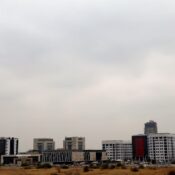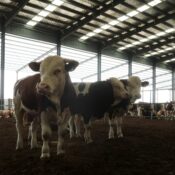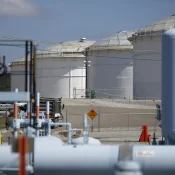
Burkina Faso suspends additional foreign media due to reportage of killings
Burkina Faso’s communications regulator announced on Sunday that the country had suspended a number of foreign news organizations, some of them for an indeterminate amount of time, for their coverage of a report that accused the army of extrajudicial killings.
This comes after a similar move last week, when Voice of America and BBC/Africa programming were momentarily halted in Burkina Faso in response to news reports about a Human Rights Watch study that accused the army of violating civilian populations.
The French newspapers Le Monde and Ouest-France, the British magazine The Guardian, the German broadcaster Deutsche Welle, and the French broadcaster TV5 Monde are among the entities included in the weekend order, according to the Superior Council of Communication (CSC).
TV5 Monde’s communications committee announced that the junta-led West African nation would halt its broadcasts for a fortnight and ban access to its website.
The CSC added that for further notice, the websites of African agencies APA and Ecofin, Deutsche Welle, Le Monde and Ouest-France, The Guardian, and others have been blocked.
The media groups were not immediately reachable by Reuters for comment.
The claims made by HRW were dismissed as “peremptory” by Burkinabe government spokesperson Rimtalba Jean Emmanuel Ouedraogo on Saturday, and he refuted the claim that the authorities were not willing to investigate the purported atrocities.
Citing a statement released by a regional prosecutor on March 1, Ouedraogo told Reuters that “the killings… have led to the opening of a judicial investigation.”
The CSC on Thursday directed that VOA and BBC/Africa programming be suspended for two weeks and that rebroadcasts be immediately stopped. In Burkina Faso, access to the websites and digital platforms of Human Rights Watch, VOA, and the BBC was also blocked.
According to a Human Rights Watch study, at least 223 civilians in two villages in Burkina Faso were summarily executed by the military in late February.
VOA asked a number of Burkinabe officials for their views to the Human Rights Watch report during its broadcast, but they did not respond.
“VOA intends to continue to fully and fairly cover events in Burkina Faso and stands by its reporting about that country,” acting director John Lippman of the publication stated in a statement on Friday.
He remarked, “We request that the Burkina Faso government reevaluate this concerning decision.”
A representative for the BBC conveyed a similar message: “The suspension limits the BBC’s capacity to provide audiences with impartial and truthful news.” Without fear or favor, we shall keep covering the area in the public interest.
Press freedom organizations denounced the two outlets’ suspension as well.
According to a statement from Jonathan Rozen, senior Africa researcher at the Committee to Protect Journalists, “the suspensions extend a pattern of censorship in the country, which has included previous suspensions of several French and local outlets.” This information was provided to VOA.
military-dominated Other Western news organizations, such as the French radio station Radio France Internationale, the French daily newspaper Le Monde, the French magazine Jeune Afrique, and the French television stations LCI and France24, have also been suspended by Burkina Faso in recent months.
“In addition to the difficulties of reporting in a country where there is insecurity, journalists in Burkina Faso shouldn’t have to deal with censorship by authorities,” Rozen stated.
Reporters Without Borders’ sub-Saharan Africa bureau head, Sadibou Marong, concurred, referring to the suspensions as “yet another blow to press freedom” in Burkina Faso.
Based in Dakar, Senegal, Marong continued, “They [authorities] are using suspensions against those who dare to report freely.”
Along with Mali and Niger, Burkina Faso is among the West African countries in the Sahel region fighting Islamist insurgencies. In a coup in 2022, the military took over the government on the pretext that it had failed to quell an uprising by jihadists that had broken out in 2015.
The nation of West Africa was formerly praised for being a regional leader in media freedom.
According to Marong, “it used to really be a success story in terms of press freedom in Africa.” However, he pointed out that after military takeovers in January and September of 2022, that status was terminated.
May 3, World Press Freedom Day, is just one week away when VOA and the BBC decided to halt operations.
All Categories
Recent Posts
Tags
+13162306000
zoneyetu@yahoo.com



